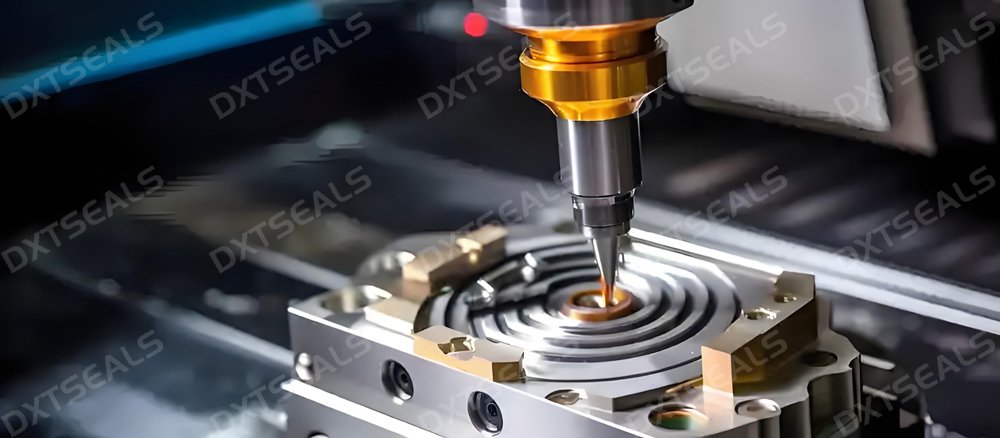
In today’s fast-paced manufacturing world, CNC lathes play a crucial role in producing precise and complex components. Whether in the aerospace, automotive, or sealing industry, CNC turning technology is a cornerstone of modern production. In this article, we’ll delve into the working principles of CNC lathes and the advantages they offer across different applications.
What Is a CNC Lathe?
A CNC (Computer Numerical Control) lathe is an advanced machine tool used to rotate a workpiece on its axis while cutting, sanding, drilling, or turning it with various tools. Unlike traditional manual lathes, CNC lathes operate based on programmed instructions, allowing for greater precision, consistency, and efficiency.
How Does a CNC Lathe Work?
The operation of a CNC lathe involves several key steps:
-
Programming: The design of the part is first created using CAD software and then converted into machine-readable G-code.
-
Setup: The material (usually metal, plastic, or composite) is clamped onto the spindle.
-
Machining: The spindle rotates the workpiece while the cutting tool, controlled by computer instructions, removes material as required.
-
Finishing: After shaping, the part may go through processes like polishing or coating.
At DXTSEALS, we utilize high-precision CNC lathes to produce customized sealing components with tight tolerances and consistent quality.
Key Components of a CNC Lathe
-
Spindle: Holds and spins the material.
-
Tool Turret: Houses different cutting tools.
-
Chuck: Clamps the material in place.
-
Control Panel: Allows operators to input or adjust machining parameters.
-
Bed: The base structure that ensures rigidity.
Advantages of CNC Lathes
-
High Precision and Consistency
CNC lathes minimize human error, allowing for repeatable, high-accuracy production. -
Efficiency and Speed
With automated processes, CNC machines can run 24/7, reducing production time and cost. -
Complex Capabilities
CNC lathes can produce intricate geometries that would be difficult or impossible manually. -
Reduced Waste
Optimized programming helps reduce material waste and improve sustainability. -
Scalability
From prototyping to mass production, CNC lathes offer flexible output volumes.
Applications of CNC Lathe Technology
-
Aerospace: Production of engine parts and structural components.
-
Automotive: Manufacturing shafts, gear blanks, and bushings.
-
Oil & Gas: Precision seals and valve components.
-
Sealing Industry: At DXTSEALS, we use CNC turning to ensure that our seals meet high standards of durability and performance.
Conclusion
CNC lathe machines are a vital asset in achieving high-quality, cost-effective, and efficient manufacturing. By automating precision machining, industries can meet the growing demand for complex parts with tight tolerances.
If you're looking for a reliable manufacturer using CNC technology, DXTSEALS is here to help. Contact us today to learn more about our custom CNC machining services.
